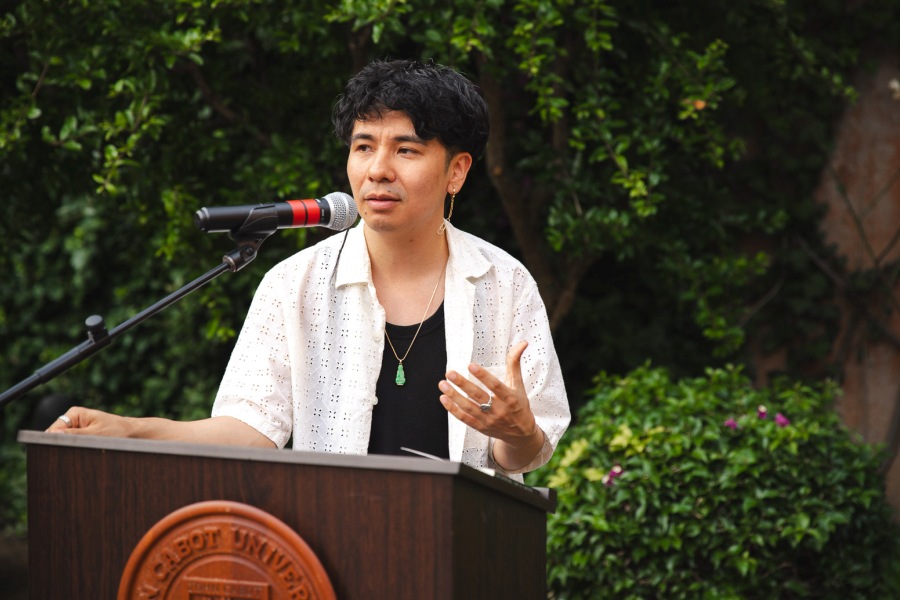50 Years of Magic: JCU Welcomes Professor Michael D. Bailey
On March 15, 2023, the Department of History and Humanities and the American Academy in Rome welcomed Professor Michael D. Bailey for a talk called “50 Years of Magic as Interdisciplinary Study: From the Revival of the 1970s to Future Perspectives.” Bailey is professor of history at Iowa State University as well as the chair of the Department of World Languages and Cultures. His research focuses on medieval religious history, specifically magic, witchcraft, and superstition. The talk was organized by Professor Fabrizio Conti from the JCU Department of History and Humanities.

Michael D. Bailey
Bailey emphasized the coincidence between the 50-year revival of magic and witchcraft studies, which began especially in the Anglo-Saxon academic world in the 1970s, and the 50th-anniversary celebration of John Cabot University. In particular, the speaker emphasized the interdisciplinary aspect of the study of magic and witchcraft, which by their nature transcend spatial and temporal boundaries and whose study requires historical knowledge that is nevertheless open to comparison with several other disciplines. This makes such topics particularly significant from the perspective of liberal arts education, which by its nature is open, inclusive, and multidisciplinary.
The talk addressed the topic of language and terminology used to describe magical practices and practitioners. Bailey said that comparing magical practices from different cultures only using western European languages can be problematic. However, this is common because most western European languages are often used to address global topics. Different languages can create different connotations that therefore can affect people’s perception of magical practices.
Bailey then went on to describe the diverse conceptions of magic based on the perspectives of historians as opposed to anthropologists. He explained that historians study magic in the past, whereas anthropologists study it in the present. Some believe that magic, especially in western cultures, has become irrelevant, but it continues to be important outside the west. With historians and anthropologists working together and both now applying each other’s approach to their own study, there is an agreement that magic is relevant in the present across all cultures.
In wishing John Cabot University 50 more years of continued success, Bailey highlighted how academic advances, especially in the humanities, depend on wide-ranging collaborations and conversations, both interdisciplinary and international. He concluded by saying that from this point of view, John Cabot University certainly represents a model within the panorama of liberal arts education.





